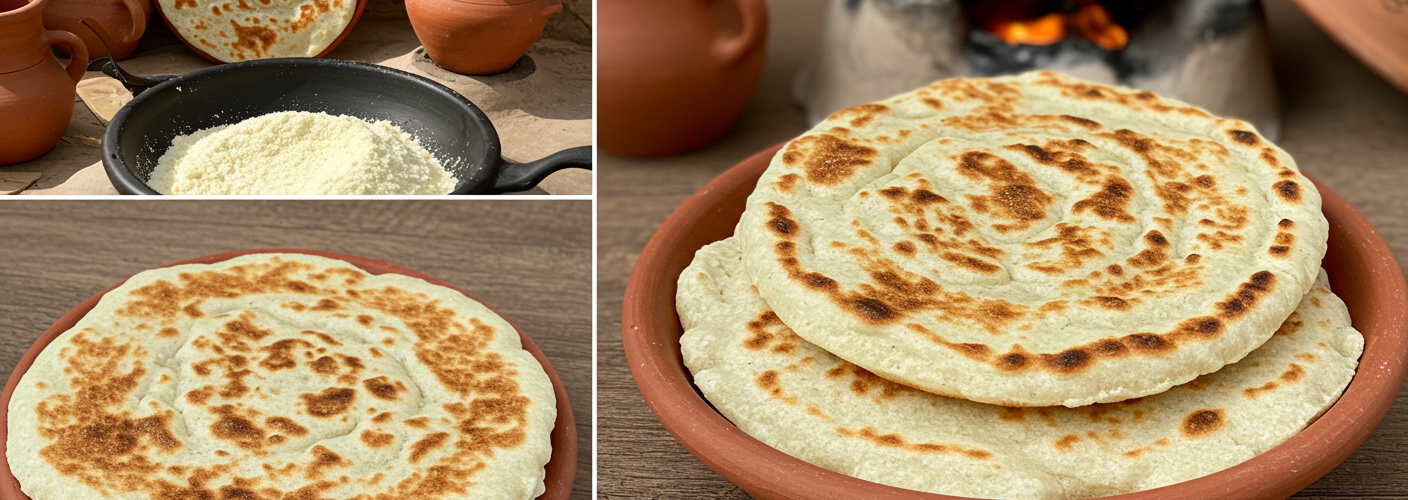Nestled in the heart of North Africa, Libya boasts a rich tapestry of culinary traditions that reflect its diverse history and culture. One such staple is Libyan Bazeen, an unleavened bread revered for its simplicity and nutritional value. Made primarily from boiled barley flour, it is a dish that captures the essence of Libyan cooking, emphasizing natural ingredients and age-old techniques.
What is Libyan Bazeen?
Libyan Bazeen is a traditional bread that has been a part of Libyan cuisine for centuries. Unlike leavened breads that rise thanks to yeast or baking powder, Bazeen is unique in that it is made without any leavening agents. The process begins with boiling barley flour until it becomes a thick, sticky paste. This mixture is then shaped into balls or a form that can be flattened, allowing it to harden. The hardened dough is subsequently baked or steamed, resulting in a dense, hearty bread with a distinct flavor that pairs beautifully with many dishes.
The Making of Bazeen
The preparation of Bazeen requires skill and patience, making it not just a recipe but a labor of love. First, the barley flour is boiled in water until it reaches the desired consistency. Traditionally, the barley used is finely milled to ensure a smooth texture. Once cooked, the dough is removed from the heat and cooled slightly before being shaped.
Next, the formed dough is allowed to harden—a crucial step that enhances its texture. After hardening, it can be baked or steamed, each method resulting in slightly different flavors and textures. Baking gives the Bazeen a crispy exterior, while steaming keeps it soft and moist. The choice of cooking method often reflects personal preference and regional variations across Libya.
Nutritional Value
Barley, the primary ingredient in Bazeen, is known for its health benefits. It is a rich source of fiber, vitamins, and minerals, making it a nutritious addition to the Libyan diet. The consumption of barley has been historically significant in various cultures for its ability to sustain and nourish. In a country where food resources may vary, Bazeen stands out as both a filling and healthful option.
Cultural Significance
Beyond its nutritional value, Libyan Bazeen holds cultural significance in Libya. It often features in family gatherings and celebrations, symbolizing hospitality and the communal spirit of the Libyan people. Traditionally served alongside a variety of stews, vegetables, and meat dishes, Bazeen acts as the centerpiece of the meal, promoting sharing and togetherness.
Moreover, the science of preparing Bazeen is often passed down through generations, with family recipes being cherished and protected. It becomes a canvas for creativity, with many families adding local ingredients or spices to give their own unique twist to this ancient staple.
How to Enjoy Libyan Bazeen
The versatility of Bazeen allows it to be enjoyed in numerous ways. It pairs excellently with spicy stews, rich tomato-based sauces, or simply drizzled with olive oil and served with fresh vegetables. Its robust flavor makes it a perfect accompaniment, capable of soaking up the rich juices of any hearty dish.
In conclusion, Libyan Bazeen is more than just a type of bread; it is a delicious embodiment of Libyan culture and heritage. With its nutritious ingredients, traditional preparation methods, and deep-rooted significance, Bazeen continues to be a cherished part of daily life and special occasions alike in Libya. Whether you are a seasoned chef or a curious foodie, exploring the world of Bazeen is a delightful journey into the heart of Libyan cuisine.




Add comment